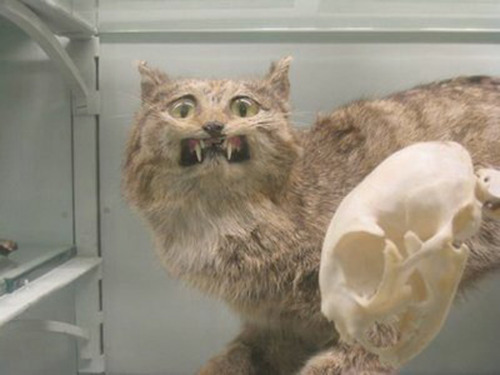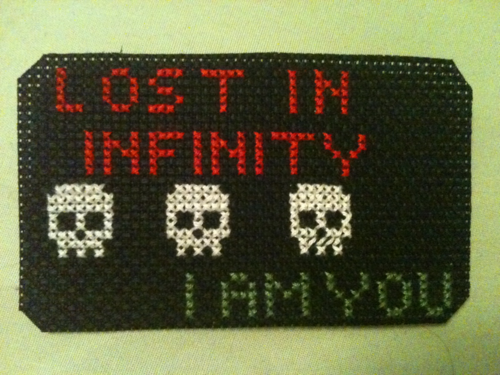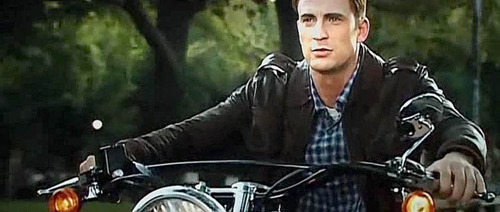Travis Besecker's Blog: Apocalypse Coming, page 29
June 26, 2012
So right for all the wrong reasons…

So right for all the wrong reasons…
June 25, 2012
Killing the Dealer
I want to destroy the favstar system.
Anybody who uses Twitter for jokes and such knows what Favstar is and how annoying, addictive and damaging it can be.
The concept has value and the idea was honest but the system is flawed.
Here’s how it often goes. Someone says something funny, someone Retweets it and clicks the star, someone else does the same, then it makes it’s rounds until someone gives it a Tweet of the Day trophy. The original tweeter gets bit by the favstar bug and starts tweeting specifically for stars and retweets. They start starring other people’s stuff in hopes of stars in return. Some go down the route of following thousands of people in search of mass numbers of followers. Some people even go the ultimate asshole route of building up 10,000 or more followers by following 10,000 or more people, then sitting down and unfollowing everyone and refollowing only a few hundred to show the inflated difference. All for the stars and retweets.
Why? Most for the favstar notifications and milestones such as trophy’s, 50star, 100star and 250star tweets. Some make it to the leaderboard and finally the main board of influential tweeters. Many of my friends are there. One of my closest friends spent hours and hours working the system on my behalf and ended up there before finally deleting everything. It becomes consuming and distorts the point of it all.
The biggest problem is the way the system works. It’s basic foundation is it promotes tweets and people who receive 50 stars on a tweet. For some that’s a difficult task for others it takes a mention of eating potatoes for dinner. If you have 250 followers it means 20% starred it. If you have 10,000 followers only 0.5% are required for the same notoriety. What you have is the rich getting richer and the poor getting poorer. There are ways to scam the system which adds to the problem.
What to do, what to do… let’s kill the system.
Here’s my idea.
It would require about 100 accounts. Those 100 accounts would need to all follow each other. Each person would be required to make a private list of those 100 people. Each day each person would need to tweet 5 to 10 times. They’d also have to star everything all 99 other accounts posted. They’d have to RT 5 of the 99 other accounts randomly as well. Every time any account gained a follower, they’d have to follow it back but NOT add it to their private list, NOT star anything on it, NOT reply to anything that mentions them. NOTHING but tweet and star within the list.
Think about it. Day one, without any additional followers, all 100 accounts would receive multiple 50star and 100star tweets which would put them on the leaderboard gaining them all multiple users to star and RT additionally. Day two it would multiply and so on.
In my estimation, based on that alone, those 100 accounts would reach 1000 followers within 2 weeks after more than a hundred 50 & 100 star tweets floated the boards per account putting 10,000 favstar RT notifications for 50/100 stars in the bank for the 100 accts
5000 followers per account within 2 months after more than 40,000 50&100star tweets without a single follower starring anything. If you have just 1% of the followers starring that number jumps from 40,000 to 80,000 tweets with 50 or more stars in 2 months.
Within 2 months those 100 accounts would clog the favstar board. Once we control the leaderboard we can do whatever we want. How about nothing but tweets about potatoes? Or “Designing Women” and what it did to perpetuate stereotypes about southern women even though it gave us Annie Potts? What about just tweeting nothing but how they became what they were until favstar removed them or changed the system?
If they were removed from the favstar system for cheating it would be our opportunity to bring a blogging shit storm down on those islanders for picking and choosing who is scamming and who isn’t. As long as the tweets were all genuine attempts at entertainment and posted by 100 different people, it would work and work well.
Ever get a phrase stuck in your head...
…and you just can’t get it out? You keep saying it for no reason, it keeps creeping it’s way into your conversations and somehow becomes your new go-to response for everything until you notice it then it just starts pissing you off so much that every time you hear yourself say it you want to stop and punch yourself in the throat for doing it yet again?
Then you start noticing other people’s catch phrases and you wonder if they want to do the same thing every time they say “you know what I mean?” or “that’s what I’m saying” or “totally” or even “like”…
What would happen if everyone started doing that? Just punching themselves in the face every time that one annoying habitual phrase snuck out between the subject and verb? We’d have a lot of people walking around with bloody knuckles and taped up noses but audibly the world would be a much more pleasant place to carry on a conversation.
I think I need to just say it a thousand times today to get it out of my system. I’m going to start putting it into every sentence in hopes of mass overloading the system and purging the valve until I’m over the hump and this can just be a funny little post about nothing.
That or start punching myself in the face.
Hopefully by tomorrow I’ll have this phrase out of my head and I won’t have to punish myself every time I say “anal fisting”.
Anal fisting. Anal fisting. Anal fisting.
June 24, 2012
Breaking my Droid because I want Ice Cream Sandwich...
Anybody have any luck with Mac OSX? I’m stuck after running DroidBreak through Shell to put it into Root without success. SuperUser is still giving me Permission denied prompts in ConnectBot local but all the files are there. Getting pissed and about to call in someone with a PCjust to make it easy but I’m not going that route unless it’s a last resort. Fucking PC bullshit.
June 21, 2012
"Haunted" by Chuck Palahniuk - an excerpt
I normally don’t post excerpts from other people’s work for lots of different reasons but this passage was just too… creepy? cool? disturbing? I don’t even know… something… not to post it. Think of it as a really long quote…
The Nightmare Box A Story by Mrs. Clark
The night before she disappeared, Cassandra cut off her eyelashes.
Easy as homework, Cassandra Clark takes a little pair of scissors out of her purse, little chrome fingernail- scissors, she leans into the big mirror above the bathroom sink and looks at herself. Her eyes half closed, and her mouth hanging open the way she puts on mascara, Cassandra braces one hand against the bathroom counter and uses the scissors to snip. Each long black lash falling, settling, fluttering down the sink drain, she doesn’t even look at her mother reflected there, standing behind her in the mirror.
That night, Mrs. Clark hears her slip out of bed while it’s still dark. In the one hour when there’s no traffic in the street, she goes naked to the living room with all the lights off. There’s the rumble of springs inside the old sofa. There’s the rasp and—click—of a cigarette lighter. Then a sigh. A whiff of cigarette smoke.
After the sun’s up, Cassandra’s still there, sitting naked on the sofa with the curtains open and cars going past. All her arms and legs bunched tight around her in the cold air. In one hand, she’s got the cigarette, burned down to the filter. Ashes on the sofa cushion beside her. She’s awake and looking at the blank television screen. Maybe looking at herself reflected there, naked in the black glass. Her hair looks lumpy with tangles from not combing. Her lipstick from two days ago, it’s still smeared across her cheek. Her eye shadow outlines the wrinkles around each eye. Her eyelashes gone, her green eyes looking dull and fake because you never see her blink.
Her mother says, “Did you dream about it?”
Mrs. Clark asks: does she want French toast? Mrs. Clark turns on the wall heater and gets Cassandra’s robe off the back of the bathroom door.
Cassandra hugging herself in the cold sunshine, sitting knees- together, her breasts are pushed up by her arms. Flakes of gray cigarette ash are scattered on the top of each thigh. Flakes of gray ash settle into her pubic hair. Her feet twitch with tendons under the skin. Her feet flat and side by side on the polished wood floor, they’re the only part of her not statue- still.
Mrs. Clark says, “Did you remember something?” Her mother says, “You had on your new black dress …” She says, “The short- short one.”
Mrs. Clark goes to put the bathrobe around her daughter, tucking it up tight around her neck. She says, “It happened in that gallery. Across from the antique store.”
Cassandra doesn’t look away from her own dark reflection in the off television. She doesn’t blink, and the bathrobe slips down, putting both her breasts back out in the cold.
And her mother says, what did she see?
“I don’t know,” Cassandra says. She says, “I can’t say.”
“Let me get my notes,” Mrs. Clark tells her. She says, “I think I have this figured out.”
It’s when she comes back from the bedroom, her thick brown folder of notes in one hand, the folder open so she can pick through it with her other hand, when she looks around the living room, Cassandra’s gone.
At that moment, Mrs. Clark’s saying, “The way the Nightmare Box works is, the front …”
But Cassandra’s not in the kitchen or the bathroom. Cassandra’s not in the basement. That’s their whole house. She’s not out in the backyard or on the stairs. Her bathrobe
is still on the sofa. Her purse and shoes and coat, none of them are gone. Her suitcase is still on her bed, half packed. Only Cassandra’s gone.
At first, Cassandra said it was nothing. According to the notes, it was an art- gallery opening.
There in Mrs. Clark’s notes, it says, “Random Interval Timer …”
Her notes say, “The man hung himself …”
It started on the night all the galleries open their new shows, and downtown was crowded with people, everyone still dressed up from the office or school and holding hands. Medium- young couples in dark clothes that wouldn’t show the dirt from a taxi seat. Wearing the good jewelry they couldn’t wear on the subway. Their teeth white, as if they never used teeth for anything except to smile.
They were all watching each other look at art before watching each other eat dinner.
It’s all in Mrs. Clark’s notes.
Cassandra had on her new black dress. The short- short one.
That night, she wanted a long glass of white wine, just to hold it. She didn’t dare lift the glass, because her dress was strapless, so she kept her arms down at each side, holding her elbows close in. This flexed some muscle across her chest. Some new muscle she’d found playing basketball in school. It pushed her breasts so high her cleavage seemed to start at her throat.
That dress, it was black and stitched with black sequins and beads. It was a crust of rough black glitter with her breasts pink and meaty inside. A hard black shell.
Both her hands, the way her painted fingernails meshed together, they looked handcuffed around the stem of her wineglass. Her hair coiled and pinned up high, it was so heavy and thick. Strands and curls were coming undone, dangling, but she didn’t dare reach up to fix it. Her bare shoulders, her hair coming apart, her high heels clenched the muscles of each leg, pushed her ass up, curving it out at the bottom of a long zipper.
Her perfect lipstick mouth. No red smeared on the glass she didn’t dare lift. Her eyes looking huge under long eyelashes. Her green eyes the only part of her moving in the crowded room.
Standing and smiling in the center of an art gallery, she was the only woman you’d remember. Cassandra Clark, only fifteen years old.
This was less than a week before she disappeared, just three nights.
Sitting now in the warm spot and ashes Cassandra left on the sofa, Mrs. Clark looks through the folder of notes.
The gallery owner was talking to them, to them and the people gathered around.
“Rand,” her notes say. The owner’s name was Rand.
The gallery owner was showing them a box on three tall legs. A tripod. The box was black, the size of an old- time camera. The kind of camera where a man might stand behind, hunched under a sheet of black canvas to protect the glass plate coated with chemicals inside. The kind of Civil War camera that took your picture with a flash of gunpowder. A mushroom cloud of gray smoke that hurt your nose. When you first walked into the gallery, that’s how it looked, this box on three legs.
The box was painted black.
“Lacquered,” the gallery owner said.
It was lacquered black, waxed and smudged gray with fingerprints.
The gallery owner was smiling down the stiff, strapless front of Cassandra’s dress. He had a thin mustache, plucked and trimmed perfect as two eyebrows. He had a little devil’s beard that made his chin look pointed. He wore a banker’s blue suit and a single earring, too big, too fake- bright to be anything but a real diamond.
The box was fitted along every seam with complicated moldings, ridges and grooves, that made it look heavy as a bank vault. Every seam hidden under detail and thick paint.
“Like a little coffin,” somebody in the gallery said. A man with a ponytail, chewing gum.
On each side of the box were brass handles. You had to hold them both, the gallery owner told them. To complete a circuit. If you wanted to make the box work right, you held both handles. You pressed your eye to the brass peephole in the front. Your left eye. And you looked inside.
Person after person, a hundred people must’ve looked that night, but nothing happened. They held on and looked inside, but all they saw was their own eye reflected in the darkness behind the little glass lens. All they heard was a little sound. A clock, ticking. Slow as the drip … drip … drip … from a leaky faucet. This little ticking from inside the smudged, black- painted box.
The box felt sticky with its layer of grime.
The gallery owner held up one finger. He tapped his knuckle against the side of the box and said, “Some kind of Random Interval Timer.”
It could run for a month, always ticking. Or it could run for another hour. But the moment it stopped, that would be the moment to look inside.
“Here,” the gallery owner said, Rand said, and he tapped a little brass push- button, small as a doorbell, on the side of the box.
You hold the handles, and you wait. When the ticking stops, he said, you look and push the button.
On a little brass nameplate, a plate screwed to the top of the box, if you stood on tiptoes, you could read “The Nightmare Box.” And the name “Roland Whittier.” The brass handles were green from people holding tight, waiting. The brass fitting around the peephole was tarnished with their breath. The black outsides were waxed with grease from their skin rubbing, pressed close.
Holding the handles, you could feel it inside. The ticking. The timer. Steady and forever as a heartbeat.
The moment it stopped, Rand said, the push- button would trigger a flash of light inside. A single pulse of light.
What people saw then, Rand didn’t know. The box came from the closed antique shop across the street. There it had sat for nine years and never stopped ticking. The man who owned it, the antiques dealer, he always told customers it might be broken. Or it was a joke.
For nine years, the box sat ticking on a shelf, until dust buried it. Until, one day, the dealer’s grandson found it, not ticking. The grandson was nineteen years old, going to college to become a lawyer. This teenager without a hair on his chest, all day girls came into the shop to use their eyes on him. A good kid with a scholarship playing soccer, a bank account, and his own car, he had a summer job at the antique shop, dusting. When he found the box, it was silent—ready and waiting. He took the handles. He pressed the button and looked inside.
The antiques dealer found him, dust still smeared around his left eye. Blinking. His eyes focused on nothing. He just sat in a pile of dust and cigarette butts he’d swept up on the floor. The grandson, he never went back to college. His car sat at the curb until the city towed it away. Every day after that, he sat in the street outside the shop. Twenty years old, and he sits on the curb all day, rain or shine. You ask him anything and he just laughs. That kid, by now he should be a lawyer, practicing law, but now you can go visit him in some fleabag hotel. Public housing, on Social Security for a
complete mental depression. Not drugs even.
Rand, the gallery owner, says, “Just a case of total crackup.”
You go visit this kid, and he sits on his bed all day, cockroaches crawling in and out of his clothes, his pant legs and shirt collar. Each fingernail and toenail is grown long and yellow as a pencil.
You ask him anything: How he’s doing? Is he eating? What did he see? And the kid still only laughs. Cockroaches moving around, lumps inside his shirt. His head circled with houseflies.
Another morning, the antiques dealer comes in to open his shop, and the dusty clutter is different. It could be someplace he’s never been. Again, the box has stopped ticking. That always- quiet countdown. And the Nightmare Box sits there, waiting for him to look.
All morning, the dealer doesn’t unlock the front door. People come and cup their hands against his window to peek inside. To look for something back in the shadows. For some reason why the shop isn’t open.
In that same way, the antiques dealer could’ve peeked inside the box. To see why. To know what happened. What would take the spirit out of a kid, now twenty years old, a kid with everything to look forward to.
All morning, the antiques dealer watches the box not tick.
Instead of looking, the dealer scrubs the toilet bowl in the back. He hauls out a ladder and picks the dry, dead flies from each hanging light fixture. He polishes brass. Oils woods. He sweats until his starched white shirt is soft with wrinkles. He does everything he hates.
People from the neighborhood, his longtime customers, they come to the store and find the door locked. Maybe they knock. Then they go away.
The box waits to show him what for.
It’s going to be somebody he loves who looks inside.
All his lifetime, this antiques dealer, he works hard. He finds good stock at a fair price. He carts it here and puts it on display. He wipes the dust from it. Most of his life, he’s been in this one store, and already he’s going to estate sales and buying back the same lamps and tables, selling them for the second and third times. Buying from dead customers to sell to live ones. His shop just inhaling and exhaling this same stock.
This same tide of chairs, tables, china dolls. Beds, cabinets, little knickknacks.
Coming in and going out.
All morning, the dealer’s eyes keep coming back to the Nightmare Box.
He does his bookkeeping. All day, he fingers the ten- key adding machine, balancing accounts. Totaling and comparing long columns of numbers. Seeing the same stock, the same dressers and hat racks arrive and depart on paper. He makes coffee. He makes more coffee. He drinks coffee until the can of grounds is empty. He cleans until everything in the shop is just his reflection in buffed wood and clean glass. The smell of lemon and almond oils. The smell of his sweat.
The box waits.
He changes into a clean shirt. He combs his hair.
He calls his wife and says how, for years, he’s been hiding cash in a tin box under the spare tire in the trunk of their car. Forty years ago, when their daughter was born, the antiques dealer tells his wife, he had an affair with some girl who used to come in on her lunchtime. He says he’s sorry. He tells her not to hold dinner for him. He says he loves her.
Next to the telephone, the box sits, not ticking.
The next day, the police find him. His accounts balanced. His shop in perfect order. The antiques dealer’s taken an orange extension cord and knotted it to the coat hook on his bathroom wall. In the tiled bathroom, where any mess would be easy to clean up, he’s knotted the cord around his neck and then just—relaxed. He’s sunk down, slumped against the wall. He’s choked, dead, almost sitting on the tiled floor.
On the display counter, in the front of the store, the box is ticking, again.
This history, it’s all in Tess Clark’s thick folder of notes.
It’s then the box comes here, to Rand’s art gallery. By then, it’s kind of a legend, Rand tells the little crowd. The Nightmare Box.
Across the street, the antique store is just a big painted room, empty behind its front window.
It was right then, that night, Rand showing them the box, Cassandra’s arms bunched in tight to hold her dress up, it was that moment somebody in the crowd said, “It’s stopped.”
The ticking.
It had stopped.
The crowd waited, listening to the quiet, their ears reaching out for any sound.
And Rand said, “Be my guest.”
“Like this?” Cassandra said, and she gave Mrs. Clark the tall glass of white wine to hold. She lifted one hand to the brass handle on that side. She handed Rand her beaded little evening bag, her little clutch, with her lipstick and emergency cash inside. “Am I doing this right?” she said, and lifted her other hand to the opposite handle.
“Now,” Rand said.
Mrs. Clark stood there, the mother, a little helpless with a full glass of wine in each hand, watching. Everything ready to spill or break.
Rand cupped his hand against the back of Cassandra’s neck, the bare skin above her spine, where only a soft curl of hair fluttered down. At the top of her long- zippered ass. He pressed so her neck arched, her chin coming up a little and her lips moving open. Holding her neck in one hand and her purse in his other, Rand told her, “Look inside.”
The box is quiet. Silent the way a bomb might be the moment before it goes off. Explodes.
Cassandra opens up the left side of her face, her eyebrow held high, her eyelashes on that side trembling, thick with black mascara. Her green eye, wet and soft, something between solid and liquid, she puts her eye against the little glass, the darkness inside.
The crowd around them. Waiting. Rand still holding the back of her neck.
One painted fingernail moves to the button and, Cassandra’s face pressed to the black wood of the box, she says, “Tell me when.”
The way you have to look inside, to make your face fit against the box, you have to turn your face a little to the right. You have to stoop a little, leaning too far forward. You have to hold both handles because this puts you off balance. Your weight, it has to rest against the box, pressing through your hands, balancing on your face.
Cassandra’s face against the black, complicated corners and angles of the old box. The way she might be kissing it. The trembling curls of her hair. The sparkling dangle of each bright earring.
Her finger moves on the button.
And the ticking starts again, faint and deep inside.
What happens, only Cassandra sees it.
The random timer starts again for another week, another year. Another hour.
Her face stays there, pressed into the peephole, until her shoulders sag. She stands, her arms still hanging down, her shoulders go round and sloped.
Blink- blinking her eyes, fast, Cassandra steps back and shakes her face a little. Her eyes not meeting anyone’s eyes, Cassandra looks around at the floor, at people’s feet, her lips shut tight. The stiff front of her dress bags forward, gapping out away from her breasts with no bra inside. She reaches out and pushes herself back from the box.
She steps out of each high heel, standing flat- footed on the gallery floor, and the muscles in her legs disappear. The two rock- hard halves of her ass, they go soft.
A mask of loose hair hangs in her face.
If you’re tall enough, you can see her nipples.
Rand says, “Well?” He clears his throat, pushing breath out through a long sound of spit and snot, and he says, “What did you see?”
And, still not looking at anyone, her eyelashes still pointing at the floor, Cassandra reaches a hand up and plucks the earring from each side of her head.
Rand reaches to give her the little beaded purse, but Cassandra doesn’t take it. Instead, she hands him her jewelry.
Mrs. Clark says, “What happened?”
And Cassandra says, “Can we go home now?”
They listen to the box tick.
It’s a couple days later she cut off her eyelashes. She flopped a suitcase open across the foot of the bed and she started putting things in, shoes and socks and her underwear, then taking things out. Packing and repacking. After she disappeared, the suitcase was still there. Half full or half empty.
Now all Mrs. Clark has are her notes, her thick folder full of notes about how the Nightmare Box must work. Somehow it must hypnotize you. It implants an image or an idea. A subliminal flash. It injects some message into your brain so deep you can’t retrieve it. You can’t resolve it. The box infects you this way. It makes everything you know wrong. Useless.
What’s inside the box is some fact you can’t unlearn. Some new ideas you can’t undiscover.
Days after they went to the art gallery, now Cassandra’s gone.
On the third day, Mrs. Clark goes downtown. Back to the gallery. Her thick brown folder of notes tucked under one arm.
The street door’s unlocked and the lights are off. In the gray light from the windows, Rand is there, sitting on the floor in a dusting of cut hair. His little devil’s beard is gone. His fat diamond earring, gone.
Mrs. Clark says, “You looked, didn’t you?”
The gallery owner just sits there, sprawled, legs spread on the cold concrete, looking at his hands.
Mrs. Clark sits cross- legged on the floor next him and says, “Look at my notes.” She says, “Tell me I’m right.”
The way the Nightmare Box works, she says, is because the front is angled out on one side. It forces you to put your left eye against the peephole. It has a little glass fish- eye lens, set in a brass fitting, the same kind you’d find in anyone’s front door. The way the front of the box is angled, the only way you can look is with your left eye.
“This way,” Mrs. Clark says, “what you see, you have to perceive with your right brain.”
Whatever you see inside, it’s the intuitive, emotional, instinctual side of you, the right- brain part, that has to witness it.
Plus, only one person can look each time. What you suffer, you suffer it alone. What happens inside the Nightmare Box, it only happens to you. There’s no one you can share it with. There’s no room for someone else.
Plus, the fish- eye lens, she says, it warps what you see. It distorts.
Plus, she says, the name engraved on the brass plate—The Nightmare Box—it tells you that you’ll be scared. The name creates an expectation that you fulfill.
Mrs. Clark sits and waits to be right.
She sits, watching for Rand to blink.
The box stands over them on its three legs, ticking.
Rand doesn’t move except his chest, to breathe.
On his desk, near the back of the gallery, there’s still Cassandra’s jewelry. Her little beaded purse.
“No,” Rand says. He smiles and says, “That’s not it.”
The ticking counts down, loud in the cold quiet.
You can only call the hospitals, asking if they have a girl with green eyes and no eyelashes. You can only call so many times, Mrs. Clark says, before they start not to hear you. To put you on hold. Make you give up.
She looks up from her thick stack of paper, her notes, and says, “Tell me.”
The antique store, it’s still empty across the street.
“This isn’t what happened,” Rand says. Still just looking at his hands, he says, “But this is how it felt.”
One weekend, he had to go to a company picnic for a job he used to have. A job he hated. And as a joke, instead of food, he brought a wicker crate full of trained doves. To everyone, this was just another picnic basket, more pasta salad and wine. Rand kept the hamper under a tablecloth all morning, keeping it shaded and cool. Keeping the doves inside quiet.
He snuck them crumbs of French bread. He squeezed bits of corn polenta through holes in the wicker.
All morning, the people he worked with, they sipped wine or sparkling water and talked about corporate goals. Mission statements. Team building.
At the moment when it seemed they’d all wasted a beautiful Saturday morning, that moment when all the small talk comes to an end, Rand says that’s when he opened the hamper.
People. These people who worked together every day. Who thought they knew each other. As this white chaos. This storm exploded up from the center of the picnic. Some people screamed. People fell back into the grass. They covered their faces with their open hands. Food and wine fell. Good clothes got stained.
It was the moment after when people saw it wouldn’t hurt them. When people saw this was safe. It was the most lovely thing they’d ever seen. They fell back, too amazed to even smile. For the countless hours of that one long moment, they forgot everything important and watched the cloud of white wings twist up into the blue sky.
They watched it spiral. And the spiral open. And the birds, trained by many trips, follow each other away to someplace they knew every time was their real home.
“That,” Rand says, “is what’s inside the Nightmare Box.”
It’s something that goes beyond life- after- death. What’s in the box is proof that what we call life isn’t. Our world is a dream. Infinitely fake. A nightmare.
One look, Rand says, and your life—your preening and struggle and worry—it’s all pointless.
The grandson crawling with cockroaches, the antiques dealer, Cassandra with no eyelashes wandering off naked.
All your problems and love affairs.
They’re an illusion.
“What you see inside the box,” Rand says, “is a glimpse of the real reality.”
The two people still sitting there, together on the concrete gallery floor, the sunlight from the windows and the street noise, it all feels different. It could be somewhere they’ve never been before. It’s right now the ticking from the box, it’s stopped.
And Mrs. Clark was too afraid to look.
I want to be stuffed and put on display when I...









I want to be stuffed and put on display when I die…
just.
like.
this.
June 19, 2012
Happy Birthday to Pixie!
I love this girl hardcore! She turns 25...

Happy Birthday to Pixie!
I love this girl hardcore! She turns 25 today. Wanted to be the first to tell her happy birthday!
June 14, 2012
sinxo:
Claire, what are you doing with your spare time? Oh,...

Claire, what are you doing with your spare time? Oh, just cross stitching something for Travis. Why? Because I love him. And I want to rub my butt on his butt to say I’ve rubbed butts with an author. Deal with it.
If you haven’t read his amazing work yet, you’re dead to me.
———————————
I completely forgot to reblog this…
Thank you Claire!
titsandsass:
(by André_Carvalho)
for travis...
Dear Hollywood...
Why does the film industry insist on hiring medical experts to help pronounce terms correctly or active military to oversee fight scenes for accuracy and authenticity when every single time an actor swings a leg over a motorcycle and rides off into the sunset he does so without eye protection?
Does anyone have a motorcycle in hollywood? Isn’t there a union gaffer on the set that could speak up? “Yo, dumbass! You’d never ride a motorcycle without sunglasses or something. Your eyes would dry the fuck out besides the fact that it’s illegal in all 50 states!”
Nope. Instead, again and again I end up sitting in a theater watching every bit of entertainment sucked out of a flick when the main character is shown hauling balls down the road in a closeup shot meant to showcase his resolve or contemplation of the forthcoming task as the setting sun reflects in his eye and the pavement rushes by underneath his American made piece of bi-wheeled steel. Without glasses or goggles or a windshield or anything.
How does this happen? Time and time again.
We’re not talking $100K SyFy flicks either…
Chris Evans in Marvel’s “The Avengers” with a budget of $220,000,000… apparently not enough to hire Joe Smith to tell them this scene is stupid…

Apocalypse Coming
- Travis Besecker's profile
- 43 followers




